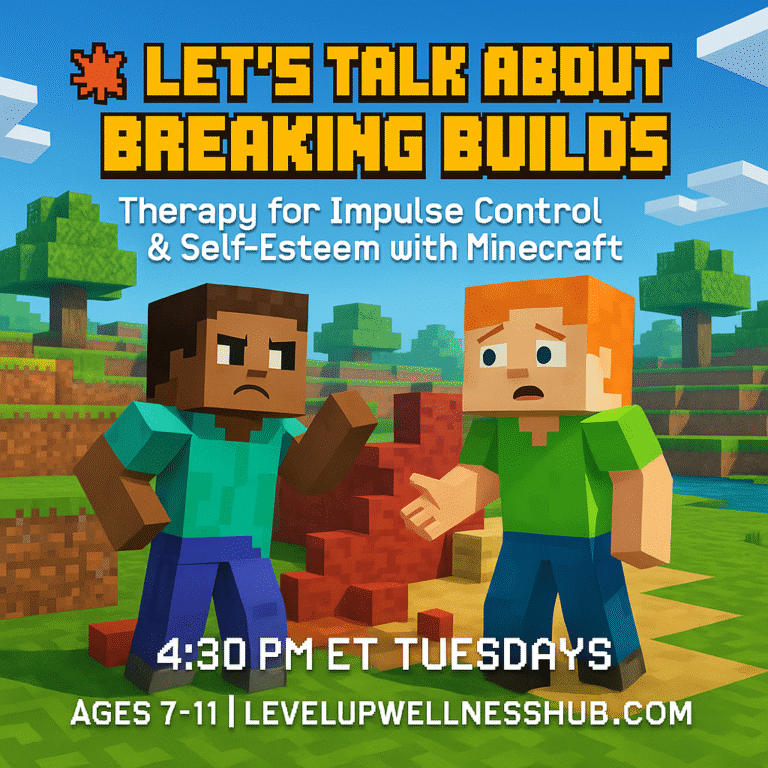The Exhaustion of Online Dating: Dealing with Situationships, Ghosting, and the Impact of ADHD and Executive Dysfunction
Online dating has made it easier than ever to meet new people, but it can also bring its own set of challenges. Endless swiping, texting, and trying to establish connections that often don’t go anywhere can lead to exhaustion and frustration. If you’ve found yourself in a cycle of situationships, ghosting, or struggling to maintain connections due to symptoms of ADHD or executive dysfunction, it’s normal to start questioning, “Is the problem me?”
Why Online Dating Feels Draining
Dating apps can offer the promise of finding love, but they also require a lot of emotional energy. You spend time creating a profile, carefully crafting messages, and investing in conversations, only to have them fizzle out without explanation. For some, this cycle can create a sense of hope and excitement, but for others, especially those with ADHD or executive dysfunction, it leads to disappointment, self-doubt, and even burnout.
Managing the nuances of online dating can be particularly overwhelming for individuals with ADHD or executive dysfunction. The uncertainty, lack of closure, and the need for consistent follow-up can make it challenging to stay focused and engaged, leading to a feeling of disconnection or defeat.
What Are Situationships?
Situationships are the gray area between casual dating and a committed relationship. They can feel like a relationship but lack clear boundaries or commitment. While this might work for some people, it often leaves others, especially those with ADHD, feeling confused, anxious, and emotionally drained. The inconsistency of situationships can be particularly tough for those who struggle with executive dysfunction, making it difficult to navigate the mixed signals and unclear expectations.
Why Ghosting Hurts So Much
Ghosting is when someone you’ve been talking to or even dating suddenly stops responding and disappears without any explanation. It can be incredibly painful because it leaves you with no answers and a lot of unresolved feelings. You might spend days or weeks replaying conversations, trying to figure out what went wrong, or worse, start believing that the issue lies with you.
For people with ADHD or executive dysfunction, ghosting can be especially triggering. The lack of closure can lead to hyper-focusing on the situation, overanalyzing every detail, and getting stuck in a loop of overthinking. This can trigger feelings of rejection, self-doubt, and anxiety, making it harder to move on and open up to new people.
Is It Me?
When faced with constant rejection, situationships, and ghosting, it’s easy to start wondering if you’re the problem. You might find yourself asking:
- “Am I too needy?”
- “Did I say something wrong?”
- “Should I be more chill and less emotional?”
The reality is that it’s rarely about you. Online dating often brings out people’s worst habits, such as avoiding conflict, seeking validation, or maintaining multiple connections without commitment. These behaviors can lead to emotional disconnection and a lack of respect for others’ feelings. Still, it’s important to reflect on patterns in your own behavior, especially if ADHD or executive dysfunction is impacting your dating experiences.
Nipping Unhelpful Flight Responses in the Bud
When dating becomes a series of stressful encounters, some people develop a flight response. This response makes you want to shut down, avoid dating altogether, or withdraw emotionally to protect yourself from further disappointment. While this is a natural way of coping, it can also prevent you from finding the connection you’re truly looking for. People with ADHD might be more prone to this, as managing the executive functioning skills needed to maintain consistency in dating can be draining.
Overcoming the Flight Response and Building Healthy Connections
If you’re tired of the emotional rollercoaster of online dating, it’s time to start building the skills to form healthier connections. The key to overcoming the cycle of ghosting and situationships is learning how to recognize patterns, manage your reactions, and establish boundaries. Here are some strategies to consider:
-
Practice Vulnerability Being vulnerable means showing up as your true self, even when it feels uncomfortable. It’s about expressing your thoughts and feelings without fear of judgment. This doesn’t mean oversharing or being emotionally intense right away, but rather, being honest about what you’re looking for. If someone isn’t on the same page, it’s better to know early than to invest time in a relationship that isn’t going anywhere. For those with ADHD, this may also involve learning how to express your thoughts clearly and assertively, even when emotions feel overwhelming.
-
Develop a Healthy Attachment Style Your attachment style can have a significant impact on your dating experiences. If you’ve been caught in a cycle of situationships, it might be helpful to understand how your attachment style influences your behavior. For example, anxious attachment may lead to overthinking and people-pleasing, while avoidant attachment might cause you to withdraw when things get too close. Learning how to create a secure attachment with others can make dating less stressful and more fulfilling. This can be especially beneficial for those with ADHD who may struggle with impulsivity or emotional regulation in relationships.
-
Learn to Trust Your Gut When red flags pop up, it’s easy to ignore them, especially if you’re eager to make a connection. But ignoring your intuition can lead to repeating the same negative patterns. If something doesn’t feel right, listen to that feeling and address it directly. Trusting your gut can save you from wasting time and energy on connections that aren’t right for you. For individuals with executive dysfunction, learning to identify and act on red flags might take practice, but it’s a skill that can improve over time.
-
Set Clear Boundaries Boundaries are essential in any relationship, especially when dating online. Make sure you’re clear about your needs, expectations, and deal-breakers. If someone doesn’t respect your boundaries or makes you feel uncomfortable, it’s okay to walk away. Setting and maintaining boundaries is not only a sign of self-respect but also helps create healthier connections. For those with ADHD, having a plan in place for what to do if a boundary is crossed can help reduce stress and indecision.
-
Recognize When to Take a Break Sometimes, the best thing you can do for your emotional well-being is to take a break from dating apps. Constantly putting yourself out there without getting the results you want can be disheartening. Give yourself time to recharge, reflect on what you’re looking for, and return to dating with a clearer mindset. For individuals with ADHD, taking breaks can also be a way to manage overstimulation and reset your emotional energy.
How Therapy Can Help
If you’re struggling with feelings of rejection, self-doubt, or anxiety from dating, therapy can provide valuable support. Therapy can help you identify the unhelpful patterns you might be repeating, work through feelings of rejection, and build the skills you need to create healthier connections.
In our sessions, we’ll focus on replacing flight responses with more adaptive ways of coping. We’ll work on improving your ability to practice vulnerability, maintain a secure attachment style, and trust your instincts. Therapy can also help you manage the symptoms of ADHD and executive dysfunction that might be affecting your dating life, providing strategies to enhance focus, emotional regulation, and consistency in relationships.
Ready for a Change?
Online dating doesn’t have to be a source of exhaustion and frustration. By learning to recognize unhelpful patterns and developing the skills to build healthier relationships, you can start to navigate the dating world with confidence. If you’re ready to make a change, consider booking a session today. Together, we can work on nipping that flight response in the bud and building the skills you need to approach dating with a fresh perspective.

